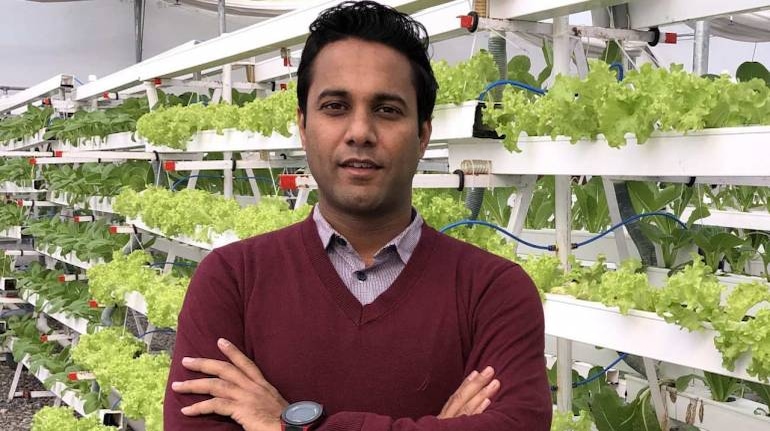



This Gurugram-based startup is growing tomato, strawberry, spinach, lettuce and much more out of thin air. You can even have a kitchen garden in the balcony of your apartment without getting your hands dirty—no soil needed.
Gurugram-based Barton Breeze is harnessing technology to grow clean food without large plots of land or heavy doses of chemicals. It follows aeroponics and hydroponics models of farming, where plants get their nutrients from mist and water.
With coronavirus outbreak pushing the idea of healthy living among the urban affluent, Barton Breeze is seeing a surge in demand.
“Demand is up 250 percent mainly as consumer interest in healthy living has gone up due to the pandemic. We are selling more through our online partners,” Barton Breeze chief executive officer Shivendra Singh said.
A viral outbreak has opened up a whole new market for the company, which can scale up production and also sell directly to consumers.
The bootstrapped startup is now looking for equity investors to foray into the consumer segment and sell its products directly as well.
How does it work?The earliest example of hydroponics is the Hanging Gardens of Babylon. But the farming technique has come a long way from the ancient world.
Hydroponics is a system through which plants can be grown without soil by ensuring they get enough sunlight and nutrient-rich water for their roots.
Aeroponics takes it a step ahead. Plants are grown in a soilless medium. Roots are suspended mid-air, with nutrient-rich mist sprayed on the plant.
The method allows plants to grow on walls, thereby enabling farming in small spaces as well.
These methods are increasingly being adopted for commercial farming because they consume less water, give a much higher yield and a shorter period.
“We have Barton Homes, where consumers can grow it indoors. This helps when they cannot trust vegetables from the market for the scare of coronavirus,” said Singh. “Our home products start at Rs 9,000.”
While getting such a farm at home can be costly and resource-intensive, Barton Breeze has its own “farms” and the produce is shipped to consumers. Their products are available on platforms like Milkbasket and BigBasket in some cities.
A profileSingh, who trained as a mechanical engineer and is a business administration postgraduate, wanted to change farming to fight global warming, climate change and pesticide contamination in food.
Barton Breeze was launched in 2015 in Dubai and Qatar. Two years late, the startup came to India, keeping only skeletal operations in the Gulf.
While Singh founded the company, Ratnakar Rai, who is a specialist in agro-technology, joined the startup as a cofounder.
Sudhanva Sundaram is their chief operating officer, who’s had stints with Flipkart and American Express.
“We use 90 percent less water and grow 10 to 15 times the amount of plants in the same square feet,” Singh said. The idea is to grow everything in and around urban spaces and ensure fresh food can be served fresh to consumers.
The idea also sits well with the “eating local” movement, which its proponents say delivers fresh and clean food and is good for the climate as the produce doesn’t have to travel long distances.
Barton Breeze grows 32 varieties of vegetables and fruits at its “farms” in nine states including Karnataka, Rajasthan, Himachal Pradesh and Delhi.
The fruits and vegetables can be made available through the year and unlike those from cold storage, these can be served fresh.
These farms can be a novel solution for cities that don’t grow their own food and depend on supply chains, which, if disrupted, like during the lockdown, can lead to shortages.
“We can grow everything but long duration trees and rice and pulses are not viable financially,” he said.

Discover the latest Business News, Sensex, and Nifty updates. Obtain Personal Finance insights, tax queries, and expert opinions on Moneycontrol or download the Moneycontrol App to stay updated!
Find the best of Al News in one place, specially curated for you every weekend.
Stay on top of the latest tech trends and biggest startup news.